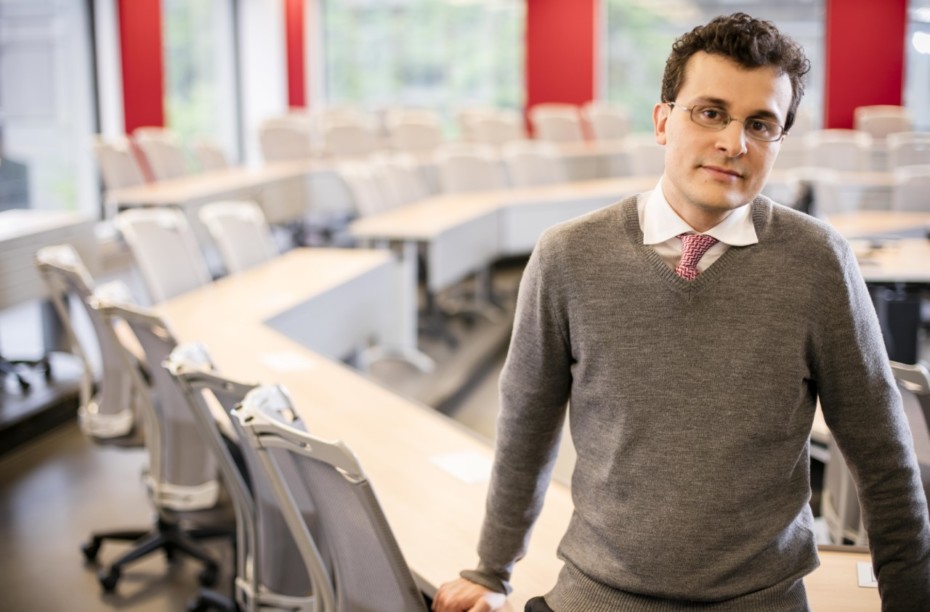
Sebastien Betermier is an Associate Professor of Finance at the Desautels Faculty of Management at McGill University. The Reporter sat down with him to discuss how the finance sector can contribute to society’s transition towards a carbon-free economy.
There’s lots of talk today about the finance world doing its part in the global fight against climate change. How do you think this industry can bring meaningful change in reducing the world’s carbon emissions?
Finance has a key role to play by encouraging capital to flow towards investments in greener technologies. The instant these new technologies come up to speed to replace oil and gas, we’ll see rapid social change.
I think it’s all about finding investments that make sense both from a return-seeking perspective and an environmental perspective. The two perspectives are not necessarily incompatible. There are a range of deserving projects that meet both and we need more of these.
The world’s largest asset manager firm, BlackRock, has recently announced that it plans to integrate sustainability into its investment portfolios. Is this a sign of changing times in the world of finance?
Yes, times are changing. Today, asset managers are increasingly looking for ways to properly integrate sustainability into their decision-making process. In order for the industry to evolve, we need large firms like BlackRock to step up and lead the way. So I was pleased to see how much Larry Fink emphasized the importance of sustainability-related risks in his recent letter to CEOs.
In December, McGill announced it would decrease the carbon footprint of its investment portfolio, a decision that has given rise to intense debate on campus. How do you feel about the University’s approach?
The decision taken by the board in December was huge and I think it could have quite a positive impact. One of the reasons sustainable investing has historically been difficult to implement is that many funds have a fiduciary duty to generate returns for stakeholders and minimize risk. One of the recommendations made in the report is to revise the endowment’s Statement of Investment Policy so that it now includes and prioritizes Environmental, Social and Governance goals. This recommendation, if properly implemented, will empower the University’s endowment fund administrators to take sustainability into account for every single investment decision they make. In other words, they will not just look at the profitability of an investment but also consider whether it’s going to have a net positive or net negative impact on the environment.
Why do you think that proponents of full and immediate divestment from the fossil fuel industry have taken issue with strategies for progressive decarbonization such as the one McGill has announced?
First, it’s important to recognize that we’re discussing this issue today thanks to the divest movement. This movement has played a major role in raising awareness and encouraging McGill to decarbonize its endowment fund.
I think McGill’s decision has come under fire because there is a misconception about what progressive decarbonization implies. We automatically tend to assume that, because it is progressive, it is not as powerful as immediate divestment. For some, progressive just means diluted or less engaged. I don’t think that’s the case. The strategy proposed by McGill consists of progressively divesting from high-carbon industries, investing in renewable energies, increasing shareholder engagement, and putting sustainability at the core of every future investment decision. I like this strategy because it is proactive at all levels, comprehensive, coherent, and it respects the needs of all stakeholders. This year’s McGill International Portfolio Challenge looked into this issue and the top teams came up with similar recommendations.
Now, moving forward, McGill will need to properly communicate this strategy and set tangible milestones if it wants the community’s support.
In what other capacity, can universities help accelerate the transition towards a carbon-free economy?
McGill needs to keep doing what it does best: cutting-edge fundamental research. Replacement solutions for oil and gas will ultimately come out of academic institutions like McGill because these are early stage technologies that are high risk for the private sector. So it’s our job as researchers to develop these early stage green technologies until they become marketable.
